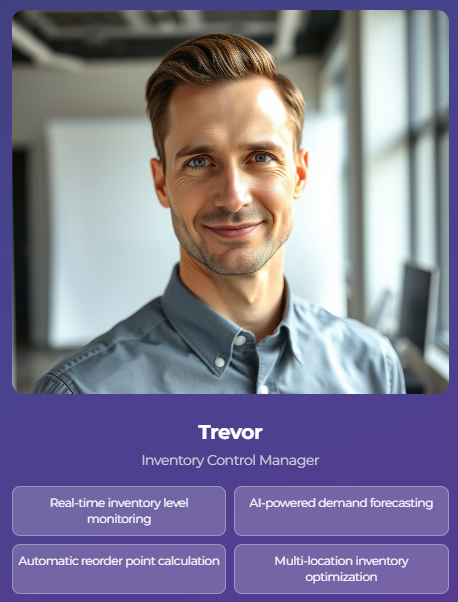Every week, another headline emerges about sensitive data being leaked through public AI platforms. A Samsung engineer accidentally shares proprietary code with ChatGPT. An attorney submits confidential client information to Claude. A healthcare administrator uploads patient data to Copilot.
These aren't isolated incidents. They're symptoms of a fundamental problem: public AI services weren't designed for enterprise data security requirements.
Yet enterprises can't afford to ban AI entirely. Employees who lack approved AI tools will use unauthorized ones anyway—creating even greater security risks through "shadow AI."
The solution? Private AI chat—AI systems deployed on-premises or in your private cloud, where your data never leaves your control.
Here's why leading enterprises are making the shift to solutions like Sovereign by FluxAI, and how to implement private AI chat without sacrificing the capabilities that make public AI services so valuable.
The Hidden Risks of Public AI Services
ChatGPT, Claude, Copilot, and Gemini are remarkable technologies. But they're built for consumer convenience, not enterprise security.
Data Retention and Training Concerns
When you use public AI services, you're typically agreeing that:
- Your conversations may be stored indefinitely
- Your data could be used to train future models
- Your inputs are processed on third-party infrastructure
- Your sensitive information passes through external networks
Even "enterprise" tiers with contractual data protections create exposure. Data in transit can be intercepted. Third-party breaches happen. Regulatory frameworks change.
Compliance Violations Waiting to Happen
Consider the regulatory landscape enterprises navigate:
HIPAA (Healthcare): Patient data shared with public AI services likely violates privacy requirements—even accidentally.
GDPR (European Operations): Personal data of EU citizens processed by US-based AI services creates complex compliance obligations.
SOC 2 / ISO 27001: Information security certifications require controls over data processing that public AI services can't guarantee.
Industry-Specific Regulations: Financial services (FINRA, SEC), defense contractors (ITAR, CMMC), and others face restrictions that public AI services can't accommodate.
A single employee pasting customer data into ChatGPT could trigger regulatory violations costing millions in fines and remediation.
Intellectual Property Exposure
Your proprietary information is your competitive advantage. When employees use public AI services to:
- Draft strategic documents
- Analyze competitive intelligence
- Review product roadmaps
- Debug proprietary code
- Summarize confidential research
They're potentially exposing trade secrets to systems you don't control. Even if current providers don't misuse this data, future policy changes, acquisitions, or breaches could compromise years of competitive positioning.
The "Shadow AI" Problem
Banning public AI services doesn't solve the problem—it drives usage underground.
Employees who find AI valuable for productivity will: - Use personal accounts instead of work accounts - Access AI through consumer devices - Share work files via personal cloud storage to process them - Disable security controls to bypass restrictions
Shadow AI is more dangerous than approved public AI because it's invisible to IT and security teams. You can't monitor what you can't see.
What Private AI Chat Actually Means
Private AI chat refers to AI systems deployed within your security perimeter—either on your own infrastructure or in your dedicated cloud environment. Sovereign by FluxAI represents this new generation of enterprise AI: completely private, fully controlled, and deployed where you need it.
Deployment Models
On-Premises Deployment
AI models run on your own servers within your data center:
- Complete control over infrastructure
- No data ever leaves your network
- Highest security posture
- Requires significant infrastructure investment
- Your team manages updates and maintenance
Private Cloud Deployment
AI models run in your dedicated cloud environment (AWS VPC, Azure Private Cloud, Google Cloud Private):
- Your data stays in your cloud tenancy
- Isolated from other customers
- Easier scaling than on-prem
- Lower infrastructure investment
- Shared responsibility for security
Hybrid Deployment
Combination of on-premises and private cloud:
- Sensitive workloads stay on-prem
- Less sensitive workloads use private cloud
- Flexibility to optimize cost vs. security
- More complex to manage
Key Characteristics
What makes AI chat "private" with Sovereign:
Data Sovereignty: Your data never leaves your control. Conversations aren't sent to external services for processing.
Model Isolation: AI models run exclusively for your organization, not shared with other customers.
Access Controls: You determine who can use the system and what they can access.
Audit Trails: Complete visibility into who asked what, when, and what information was accessed.
Customization: Models can be fine-tuned on your data without exposing that data externally.
Compliance Alignment: Deployments can be configured to meet your specific regulatory requirements.
The Business Case for Private AI Chat
The question isn't whether private AI provides security benefits—it clearly does. The question is whether those benefits justify the investment.
For many enterprises, the math is compelling:
Cost of Data Breaches
IBM's 2024 Cost of a Data Breach report found:
- Average cost of a data breach: $4.88M
- Healthcare breaches average $11M+
- Regulatory fines can exceed $50M for major violations
- Reputational damage and customer churn amplify costs
A single breach involving AI-exposed data could cost more than a decade of private AI investment.
Productivity Gains Without Risk
Employees want AI tools because they work:
- 40-60% faster document drafting
- 30-50% reduction in research time
- 25-40% improvement in code development speed
- 20-35% decrease in customer support response times
Sovereign delivers these productivity benefits without the data exposure risks of public services.
Competitive Intelligence Protection
Your strategic discussions, product roadmaps, and market analyses represent millions in competitive advantage. Keeping this information private isn't paranoia—it's business fundamentals.
Regulatory Future-Proofing
AI regulations are evolving rapidly. The EU AI Act, US state privacy laws, and industry-specific requirements will only become more stringent.
Private AI deployments like Sovereign give you control to adapt to changing compliance requirements without depending on third-party vendors to update their policies.
Real-World Use Cases
Enterprises are deploying private AI chat across diverse scenarios:
Legal Services
The Challenge: Law firms handle extremely sensitive client information. Using public AI services creates attorney-client privilege concerns and ethical violations.
Private AI Solution: On-premises deployment of Sovereign allows attorneys to: - Research case law without exposing client details - Draft contracts using firm templates and precedents - Summarize depositions and discovery documents - Analyze litigation strategy with complete confidentiality
Impact: One AmLaw 200 firm reported 35% faster document review and 40% reduction in junior associate hours on research—while maintaining complete client confidentiality.
Healthcare Systems
The Challenge: HIPAA requires strict controls over patient data. Public AI services can't guarantee compliance.
Private AI Solution: Private cloud deployment of Sovereign enables: - Clinical decision support using patient records - Medical coding and billing automation - Research literature summarization - Administrative workflow automation
Impact: A regional health system implemented Sovereign and reduced medical coding time by 50% while maintaining HIPAA compliance and improving accuracy.
Financial Services
The Challenge: SEC, FINRA, and banking regulations require data retention, monitoring, and security controls incompatible with public AI.
Private AI Solution: Hybrid deployment of Sovereign allows: - Investment research and analysis - Regulatory filing preparation - Client communication drafting - Risk assessment and modeling
Impact: A mid-size investment firm deployed Sovereign for analyst workflows, improving research output by 30% while passing regulatory audits.
Manufacturing and R&D
The Challenge: Product designs, process innovations, and supply chain strategies are trade secrets. Public AI exposure could benefit competitors.
Private AI Solution: On-premises Sovereign deployment enables: - Engineering design assistance - Process optimization analysis - Supply chain scenario modeling - Quality control documentation
Impact: A medical device manufacturer uses Sovereign for R&D workflows, accelerating product development by 25% without IP exposure.
Government and Defense Contractors
The Challenge: ITAR, CMMC, and classified information requirements prohibit use of public AI services entirely.
Private AI Solution: Air-gapped on-premises Sovereign deployment provides: - Policy analysis and drafting - Procurement documentation - Technical specification development - Administrative automation
Impact: Defense contractors are deploying Sovereign to maintain productivity gains while meeting stringent security requirements.
Implementation: How to Deploy Private AI Chat
Successful private AI implementations follow a systematic approach:
Phase 1: Requirements Definition (Weeks 1-4)
Identify Use Cases
Don't deploy AI everywhere at once. Start with: - High-value, document-heavy workflows - Processes currently using public AI unofficially - Departments with the strongest compliance requirements
Define Security Requirements
Determine your specific needs:
- On-premises vs. private cloud vs. hybrid
- Data retention and deletion policies
- Access control and authentication requirements
- Audit and monitoring capabilities
- Compliance frameworks to satisfy
Establish Success Metrics
How will you measure ROI? - Productivity improvements (time saved, output increased) - Risk reduction (compliance violations prevented, breach exposure eliminated) - Cost savings (licensing fees, manual process elimination)
Phase 2: Technology Selection (Weeks 5-8)
Choose Your Model Foundation
Sovereign supports multiple model options: - Open-source models (Llama, Mistral, Falcon) - Commercial private deployment licenses (OpenAI Azure, Anthropic AWS) - Purpose-built enterprise AI configurations
Consider: - Performance requirements (response quality, speed) - Cost (infrastructure, licensing, maintenance) - Customization needs (fine-tuning, RAG integration) - Support and updates
Select Deployment Infrastructure
On-premises considerations: - GPU requirements (NVIDIA A100/H100 for large models) - Storage capacity (model weights, conversation history) - Network architecture (isolated vs. connected)
Private cloud considerations: - AWS Bedrock, Azure OpenAI, or Google Vertex AI - VPC configuration and network isolation - Identity and access management integration
Plan Integration Points
How will Sovereign connect to your systems? - Document repositories (SharePoint, Google Workspace) - Knowledge bases (Confluence, internal wikis) - Business applications (CRM, ERP, specialized tools) - Authentication systems (SSO, Active Directory)
Phase 3: Pilot Deployment (Weeks 9-16)
Start Small
Deploy Sovereign to one department or use case first: - 10-50 users for initial testing - Single, well-defined workflow - Supportive team willing to provide feedback
Configure Security Controls
Implement: - Role-based access controls - Conversation logging and monitoring - Data loss prevention policies - Usage analytics and reporting
Train Users
Private AI requires different behavior than public AI: - What data is appropriate to share (everything within scope) - How to write effective prompts - When to escalate to human experts - How to validate AI outputs
Measure and Refine
Track your success metrics: - Are users actually adopting the system? - Is productivity improving as expected? - Are there security or compliance issues? - What friction points need addressing?
Phase 4: Scaled Deployment (Weeks 17-26)
Expand Systematically
Once pilot succeeds: - Add adjacent departments with similar use cases - Extend to additional workflows - Increase infrastructure capacity as needed - Document best practices and lessons learned
Deepen Integration
Connect Sovereign to more systems: - Enterprise search across all repositories - Workflow automation triggers - Custom fine-tuning on your data - API access for custom applications
Establish Governance
Create ongoing management processes: - AI usage policies and guidelines - Approval workflows for new use cases - Model update and testing procedures - Security review cadence - Cost allocation and chargeback
Phase 5: Optimization (Month 7+)
Continuous Improvement
Refine based on real-world usage: - Fine-tune models on your specific use cases - Optimize infrastructure costs - Expand to new departments - Enhance integrations - Update policies based on lessons learned
Monitor Performance
Track long-term metrics: - ROI across all deployed use cases - Security posture and compliance status - User satisfaction and adoption rates - Total cost of ownership
Cost Considerations: Breaking Down the Investment
Private AI requires upfront investment, but costs are more manageable than many enterprises expect:
Infrastructure Costs
On-Premises
Initial investment: - GPU servers: $50K-$500K depending on scale - Storage infrastructure: $10K-$50K - Network upgrades: $5K-$25K
Ongoing costs: - Power and cooling: $2K-$10K/month - Maintenance and support: $5K-$20K/month - IT staff time: 0.5-2 FTEs
Private Cloud
Lower initial investment: - Setup and configuration: $10K-$50K
Higher ongoing costs: - Compute (GPU instances): $5K-$50K/month depending on usage - Storage and data transfer: $1K-$5K/month - Management overhead: 0.25-1 FTE
Software and Licensing
Sovereign Licensing Options
Open-Source Models: - Free model weights - Self-support and maintenance - May require fine-tuning investment
Commercial Licenses: - Enterprise agreements: $50K-$500K+ annually - Includes support and updates - Often usage-based pricing
Implementation Services
Professional services for Sovereign deployment: - Requirements and architecture: $25K-$100K - Initial deployment and integration: $50K-$200K - Training and change management: $10K-$50K
Total Cost Example
Mid-size enterprise (1,000 employees, 200 AI users):
Year 1 (Private Cloud): - Infrastructure setup: $30K - Sovereign license: $100K - Implementation services: $150K - Ongoing operational costs (6 months): $30K - Total Year 1: $310K
Year 2-3: - Annual license: $100K - Operational costs: $60K/year - Total per year: $160K
3-Year TCO: $630K
Compare to public AI services: - 200 users × $30/month × 36 months = $216K - Plus hidden costs of data breach risk - Plus productivity lost from restricted usage
For many enterprises, Sovereign delivers better economics even before accounting for risk mitigation.
Overcoming Common Objections
"Our employees need the latest AI capabilities"
Reality: Open-source models now rival public services for most enterprise use cases. GPT-4 class performance is available through Llama 3.1, Mistral Large, and other models deployable privately with Sovereign.
For cutting-edge capabilities, Sovereign supports commercial private deployments (OpenAI on Azure, Anthropic on AWS) offering latest models in private infrastructure.
"We don't have the technical expertise"
Reality: Sovereign is designed for enterprise deployment without requiring deep AI/ML expertise. FluxAI handles the complexity, and managed services options are available.
AWS Bedrock, Azure OpenAI Service, and similar platforms integrate seamlessly with Sovereign for simplified private deployment.
"The infrastructure costs are prohibitive"
Reality: Sovereign's private cloud deployment eliminates large upfront infrastructure costs. You pay for what you use, scaling as adoption grows.
For most enterprises, 3-year TCO of Sovereign is competitive with public services—before accounting for risk reduction value.
"We'll miss out on model improvements"
Reality: Sovereign deployments can be updated as new models release. Open-source model ecosystem updates monthly. Commercial private deployments follow vendor release schedules.
You control when to update, allowing testing before rollout—reducing risk of disruptive changes.
"It's too complex for our organization"
Reality: Start simple. A basic Sovereign deployment can be operational in weeks, not months. Begin with one use case, prove value, then expand.
Many organizations overestimate complexity. If you run enterprise software today, you can run Sovereign.
The Competitive Advantage of Private AI
Beyond security and compliance, Sovereign creates strategic advantages:
Your Data Becomes Your Moat
Sovereign trained on your data gets smarter specifically for your business: - Customer interaction history improves support responses - Internal documentation enhances institutional knowledge access - Process data optimizes workflow recommendations - Historical decisions inform better strategic guidance
Competitors using generic public AI can't match this specialization.
Innovation Without Exposure
Experiment with AI for competitive advantage without revealing your strategy: - Test new product concepts - Model market scenarios - Analyze competitive intelligence - Develop proprietary methodologies
Sovereign lets you innovate aggressively while maintaining strategic secrecy.
Customer Trust and Differentiation
For customer-facing use cases, Sovereign enables you to: - Commit contractually to data protection - Offer AI-powered services without third-party exposure - Differentiate on privacy and security - Build trust with enterprise and government customers
In industries where trust is currency, Sovereign becomes a selling point.
Looking Ahead: The Future of Private AI
Private AI is still early, but trajectory is clear:
Near-Term (1-2 Years)
- Open-source models will match or exceed current GPT-4 performance
- Private AI deployment will become as simple as installing enterprise software
- Costs will decrease as infrastructure optimizes
- Hybrid architectures will become standard (private for sensitive, public for general)
Medium-Term (3-5 Years)
- Regulatory requirements will push more enterprises to private AI
- Industry-specific private AI models will emerge (legal, healthcare, finance)
- Private AI will integrate seamlessly with enterprise systems
- Edge deployment will enable private AI on individual devices
Long-Term (5-10 Years)
- Private AI will be default for enterprise deployments
- Public AI services will be primarily consumer-focused
- AI sovereignty will be standard enterprise requirement
- On-device private AI will be ubiquitous
The Bottom Line
Public AI services delivered a wake-up call: AI is transformative for enterprise productivity. But the same characteristics that make public AI convenient—cloud-based, always updated, easy to access—create unacceptable risks for enterprise data.
Sovereign by FluxAI solves this dilemma. It delivers the productivity benefits employees demand while maintaining the security, compliance, and control enterprises require.
The question isn't whether to adopt AI—employees are already using it. The question is whether that AI usage happens within your security perimeter or outside it.
The organizations deploying Sovereign today aren't doing it to be cutting-edge. They're doing it because:
- Their compliance requirements prohibit public AI
- Their competitive intelligence is too valuable to expose
- Their customers demand data protection guarantees
- Their risk management frameworks can't accept third-party AI exposure
The technology is proven. The deployment models are established. The ROI is measurable.
The time to move from public AI experiments to private AI infrastructure is now—before your next data breach headline writes itself.
Ready to Deploy Sovereign in Your Enterprise?
At FluxAI, we help enterprises implement Sovereign—our private AI solution that delivers productivity without compromising security. We offer complimentary assessments to evaluate your requirements and design the optimal private AI architecture for your organization.
Learn more at fluxagents.ai or schedule a consultation to explore how Sovereign can transform your enterprise operations while keeping your data under your control.
The future of enterprise AI is private. The question is: will you lead or follow?



